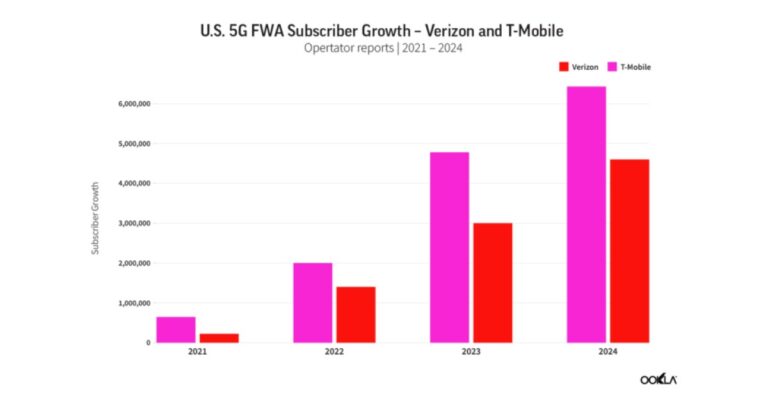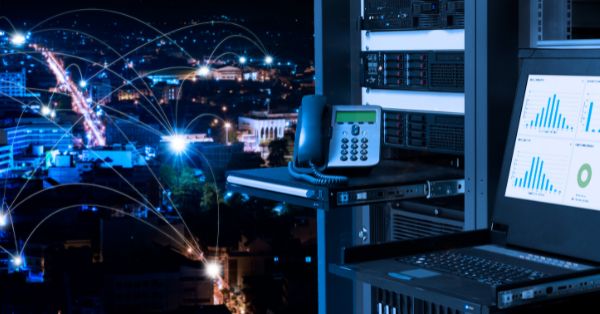Evergy, a leading energy provider in Kansas and Missouri, has partnered with OneLayer to enhance the security and management of its private LTE network, leveraging OneLayer’s Bridge platform. This multi-year agreement aims to optimize the utility company’s operations and security, as Evergy scales its network to accommodate thousands of IoT and OT devices. The collaboration marks another significant step in OneLayer’s expansion within the energy sector and highlights the growing importance of private 4G/5G networks for critical infrastructure.
Private Cellular Networks: A Growing Need for Energy Providers
As energy providers increasingly adopt private networks to support operational technologies (OT), the need for effective management and security solutions is paramount. Evergy’s private LTE network, designed by Ericsson, will connect thousands of sensors, smart meters, and other cellular-enabled devices. These devices play a crucial role in monitoring and optimizing the company’s electricity grid. In the coming years, Evergy expects the number of connected devices to grow to tens of thousands, further emphasizing the importance of efficient management and robust security measures.
OneLayer’s Bridge platform offers the essential tools to meet these needs by enabling seamless device onboarding, zero-trust security frameworks, and real-time visibility across the entire network. This level of control is critical for Evergy to scale its operations and maintain the reliability of its energy services.
OneLayer’s Role in Securing Evergy’s Critical Infrastructure
OneLayer has quickly established itself as a key player in the private 5G security space. The company, which operates in both Israel and the United States, has formed strategic partnerships with major vendors like Ericsson and Nokia. These partnerships have positioned OneLayer as a trusted provider of security solutions for enterprises using private LTE and 5G networks.
OneLayer’s platform, already deployed in key sectors, including utilities, provides end-to-end zero-trust security, which is crucial for critical infrastructure like Evergy’s electricity grid. The solution seamlessly integrates with Evergy’s existing security frameworks, ensuring that all connected devices, from IoT sensors to OT systems, are fully secured against potential threats. This is vital for an industry that must comply with stringent regulatory standards while maintaining uninterrupted service for its customers.
Automation and Scalability: Key Benefits of OneLayer’s Bridge Platform
Managing thousands of connected devices presents significant challenges for energy providers. Evergy’s private LTE network includes a variety of IoT and OT devices, each with its own onboarding, provisioning, and monitoring requirements. OneLayer’s Bridge platform automates these processes, allowing Evergy to scale its network efficiently without overburdening its IT and operational teams.
J.J. Stutler, Evergy’s Manager for Wireless Engineering and Operations, noted that the utility needed a solution that could handle the growing number of devices on its network while maintaining visibility and control over every connected device. OneLayer’s solution provided just that, enabling Evergy to automate many aspects of device management, from onboarding to performance monitoring.
This automation also empowers Evergy’s teams by allowing different departments to take responsibility for specific aspects of the network, reducing bottlenecks and increasing operational efficiency. With real-time visibility into all connected devices, including those connected through cellular routers, Evergy can dynamically adjust Quality of Service (QoS), compare vendor performance, and ensure uptime across its network.
A Secure Future for Evergy’s Private LTE Network
Evergy’s decision to implement OneLayer’s Bridge platform comes as part of a broader strategy to secure its operations and optimize network performance. OneLayer’s zero-trust security framework is critical in reducing Evergy’s attack surface and providing quick remediation in the event of a security incident. Features like geofencing, anomaly detection, and device tracking enable Evergy to continuously monitor for potential threats and act swiftly to mitigate them.
For a company managing critical national infrastructure, such security capabilities are non-negotiable. Evergy’s private LTE network connects thousands of devices that monitor and control the electricity grid, making it essential to have comprehensive security measures in place. OneLayer’s platform extends Evergy’s existing security policies into the private LTE domain, ensuring that all devices, whether they are IoT sensors or OT equipment, are protected under a unified security framework.
Collaboration with Major Vendors and Future Prospects
OneLayer’s partnership with Evergy is not the company’s first foray into the energy sector. The company has previously collaborated with Ericsson, securing private LTE networks at Ericsson’s utilities innovation center in Texas. In addition, OneLayer has formed partnerships with other major vendors like Nokia, integrating Nokia’s Digital Automation Cloud (DAC) into its security lab for testing and threat simulations.
These collaborations reflect OneLayer’s growing influence in the private 5G market, as it continues to develop solutions tailored to the needs of industries with critical infrastructure. By maintaining strong relationships with private LTE vendors, OneLayer ensures that its platform remains compatible with the latest products and technologies, providing continuous support to its customers.
As OneLayer CEO Dave Mor explained, the company is committed to supporting Evergy’s long-term goals by staying ahead of emerging challenges in the private LTE landscape. This proactive approach ensures that Evergy can continue to benefit from OneLayer’s platform as its network expands and evolves in the coming years.
The Future of Private Cellular Networks in Critical Infrastructure
The use of private LTE and 5G networks in industries like energy is expected to grow exponentially in the coming years, as companies seek to improve operational efficiency, security, and scalability. Private networks offer greater control and customization than traditional public networks, making them ideal for managing critical infrastructure that requires high levels of security and reliability.
For companies like Evergy, the adoption of private cellular networks represents a key step in their digital transformation. By leveraging platforms like OneLayer’s Bridge, energy providers can manage their networks more effectively, secure their operations, and ultimately deliver better services to their customers.
With the demand for private networks increasing across industries, OneLayer’s solutions are well-positioned to address the unique security and management challenges that come with this shift. As more companies follow in Evergy’s footsteps, the importance of scalable, secure, and automated network management solutions will only continue to grow.
About OneLayer
OneLayer is a leading provider of asset management and zero-trust security solutions for private LTE and 5G networks. The company’s Bridge platform provides enterprises with full visibility and control over their networks, enabling them to automate device management and secure their operations against potential threats. With partnerships with key vendors like Ericsson and Nokia, OneLayer continues to innovate in the private cellular network space, offering solutions that meet the needs of industries with critical infrastructure. For more information, visit www.onelayer.com.
This partnership between Evergy and OneLayer highlights the critical role that private 5G networks play in the future of industries like energy. As these networks expand, solutions that offer comprehensive security and management capabilities will be essential for ensuring operational success and long-term sustainability.























